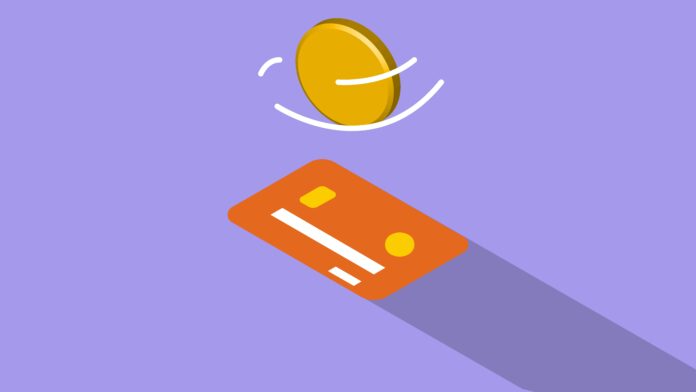Asset Tokenization
Global capital markets soared in 2021, with both global fixed income (for example, bonds) and equity markets reaching all-time highs, according to the Securities and Financial Markets Industry Association (SIMA).
But the forms of issuance and trading of securities are inefficient. Legacy systems result in too many intermediaries, costly issuance, slow settlement times, and vulnerability to market manipulation and money laundering.
Asset tokenization through blockchain technology can potentially create a more efficient system. The transition will take time, but some of the biggest players in finance, such as Goldman Sachs and JP Morgan, are already experimenting with this technology.
WHAT IS ASSET TOKENIZATION
Asset tokenization is the process of converting physical or digital assets into digital tokens. These tokens are issued, tracked, and traded on a blockchain network.
Anything that has value can be tokenized, including securities, real estate, commodities, art, physical assets, collectibles, and intellectual property. There are two types of tokens: fungible, which are interchangeable and often represent divisible actions (for example, securities), and non-fungible, which are completely unique, often representing ownership of physical assets (for example, art and artifacts). collectible) or that gain value on their own as rare digital assets.
According to interviews with blockchain executives conducted by blockdata, the tokenization of securities (eg stocks, bonds, options, etc.) has the potential to transform capital markets infrastructure in 5 key ways:
- Limit dependency on multiple intermediaries.
- Reduced issuance and trading costs compared to traditional securitization.
- Reduction of the settlement terms of the central securities depositories (DCV) and of the securities settlement systems.
- Combination of separate processes in the securities life cycle.
- Facilitate alternative forms of financing for all types of organizations worldwide.
Asset tokenization can also unlock the liquidity of previously illiquid alternative assets. Among them are real estate, natural resources, public infrastructure, art, private capital and private credit, among others. The total market size of tokenized illiquid assets could reach $16 billion by 2030, or 10% of global GDP, according to a study by BCG and ADDX.
FIRST MOVEMENTS
Blockchain companies are working on asset tokenization efforts within each stage of the capital markets ecosystem, from tokenization and issuance to primary and secondary trading, through settlement and post-trade custody.
For example, Securitize is an all-in-one platform for the issuance, management and trading of digital asset values. The company offers tokenization and issuance of securities, primary market trading for institutional investors, secondary market trading for retail investors, and a menu of tokenized funds. Securitize has already worked with more than 200 issuers.
In September 2022, Securitize launched a tokenized fund providing exposure to the Health Care Strategic Growth Fund II (“HCSG II”) of KKR. The launch of this fund was a breakthrough in the space for two reasons: it brings a colossal player in traditional private equity and real estate into the asset tokenization fold, and it gives broader access to a normally reserved private market fund. for institutional investors and the ultra-rich.
Several other startups are developing asset tokenization technology:
- ADDX offers opportunities for tokenization, issuance and investment of assets in private markets. The platform serves companies looking to raise capital in the form of private funds, private equity, and private debt, as well as accredited and institutional investors looking to invest.
- Tokens Solutions focuses on asset tokenization infrastructure, offering a platform to issue, manage, and transfer security tokens. Since its launch in 2017, the company has tokenized $28.000 billion in assets.
- Digital asset is the company behind Daml, a platform for building and running multi-party applications using smart contracts and distributed ledger technology (i.e. blockchain). Daml supports tokenization of stocks, bonds, structured products, private equity, commodities, and carbon credits, among others.
Traditional financial centers are also making waves in asset tokenization. Goldman Sachs used Digital Asset's Daml to develop its own end-to-end asset tokenization infrastructure. Now, Goldman Sachs is exploring the tokenization of real-world assets through NFTs.
Meanwhile, in May 2022, the Monetary Authority of Singapore announced a pilot project with JP Morgan and DBS Bank to tokenize bonds and deposits for blockchain-based loans through smart contracts. In other words, the project explores decentralized finance (DeFi). DeFi is an ecosystem of smart contracts (computer programs coded by developers) that allow participants to access financial services such as trading, lending, and borrowing in a peer-to-peer format, without relying on traditional intermediaries such as banks, credit unions or stockbrokers.
In June 2022, the head of JP Morgan's Onyx Digital Assets shared plans to tokenize trillions of dollars worth of US Treasuries and money market fund shares into DeFi.
IMPLICATIONS
- The tokenization of assets increase the efficiency of capital markets reducing the costs of issuing securities, eliminating dependency on third parties and reducing settlement times, all while ensuring transparency and monitoring in a blockchain network.
- tokenization unlocks the liquidity of illiquid assets. The Private markets will be more accessible to individual investors with tokenized funds, and anything of value (for example, real estate, land, and physical assets) can become an investable and tradable asset through tokenization.
- Tokenized securities and funds will contribute exponentially more capital than DeFi markets authorized and comply for loans, borrowings and institutional operations.





An amazing product that can help my team manage the risk of financial crime.